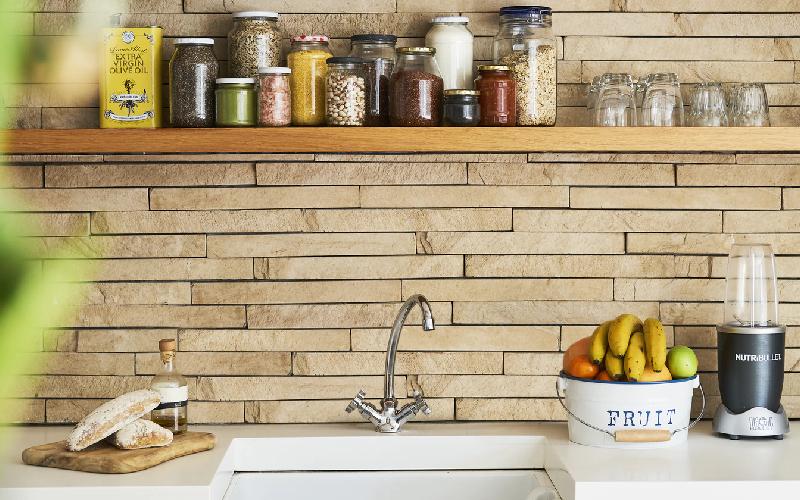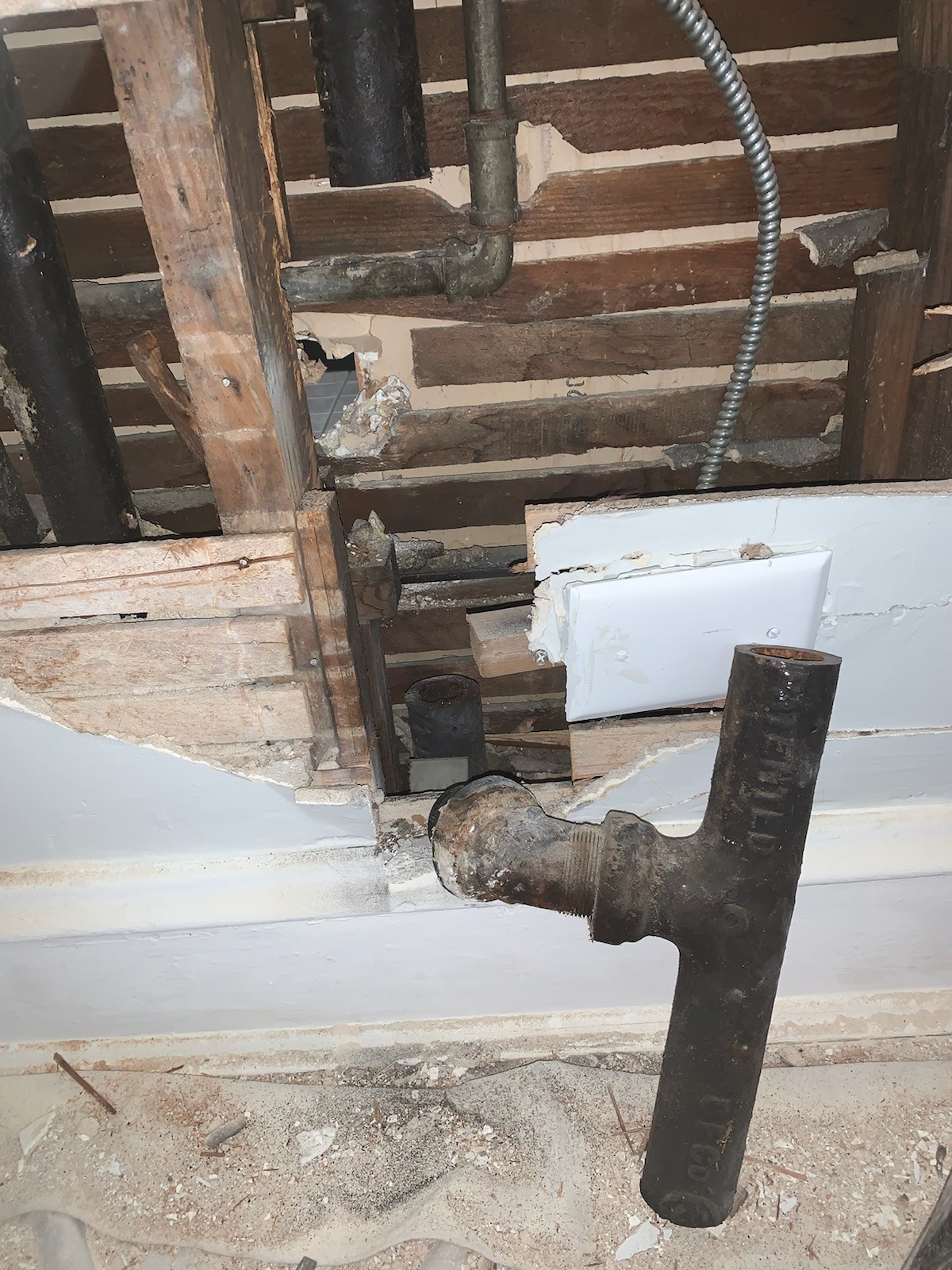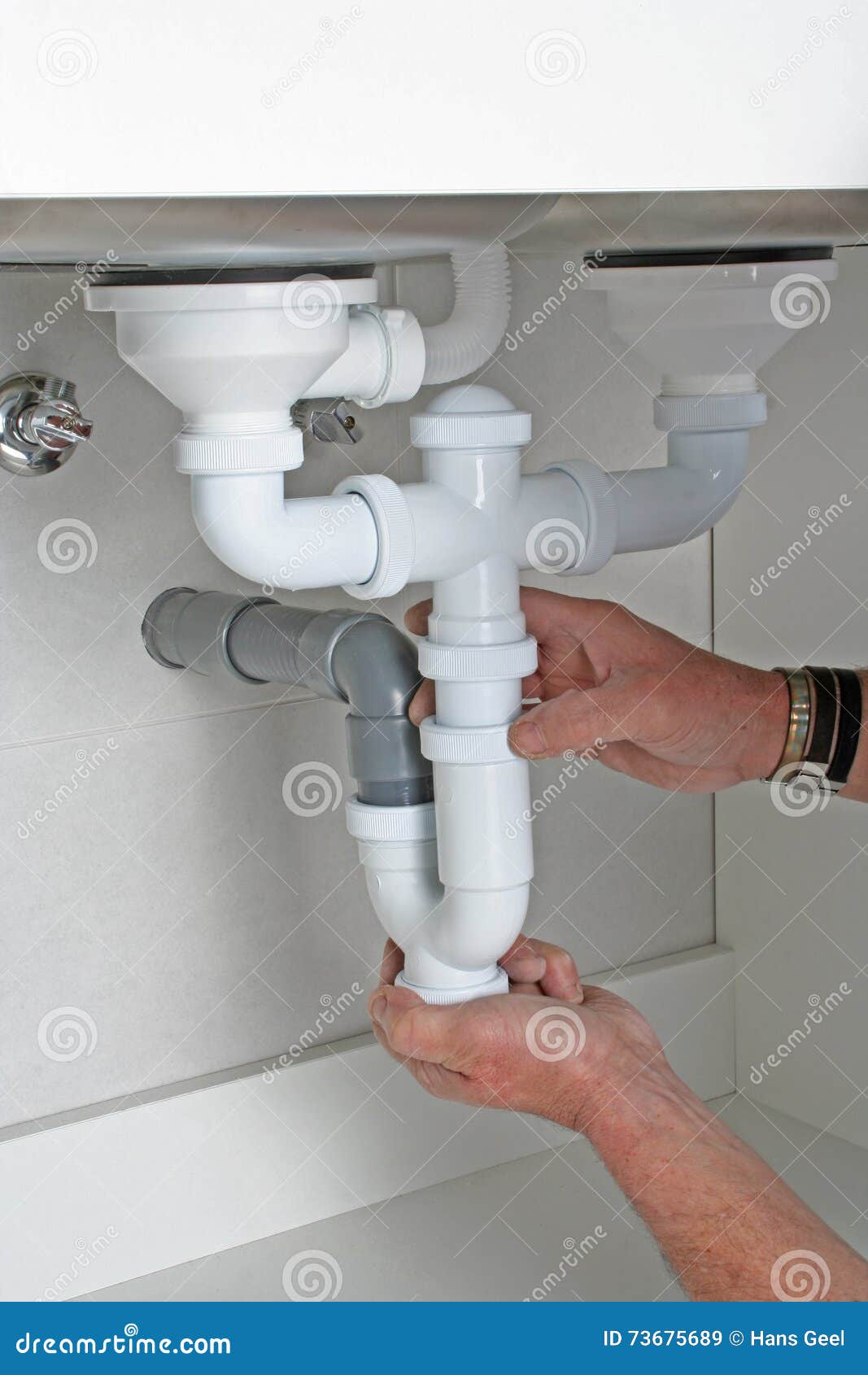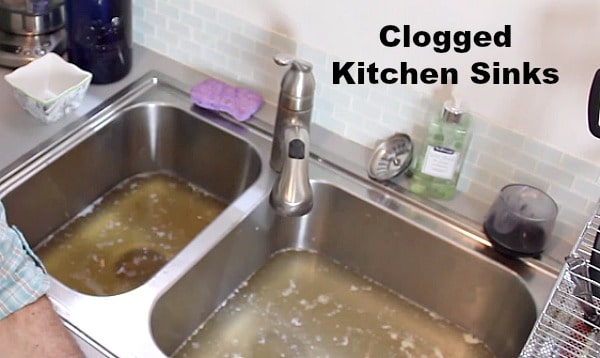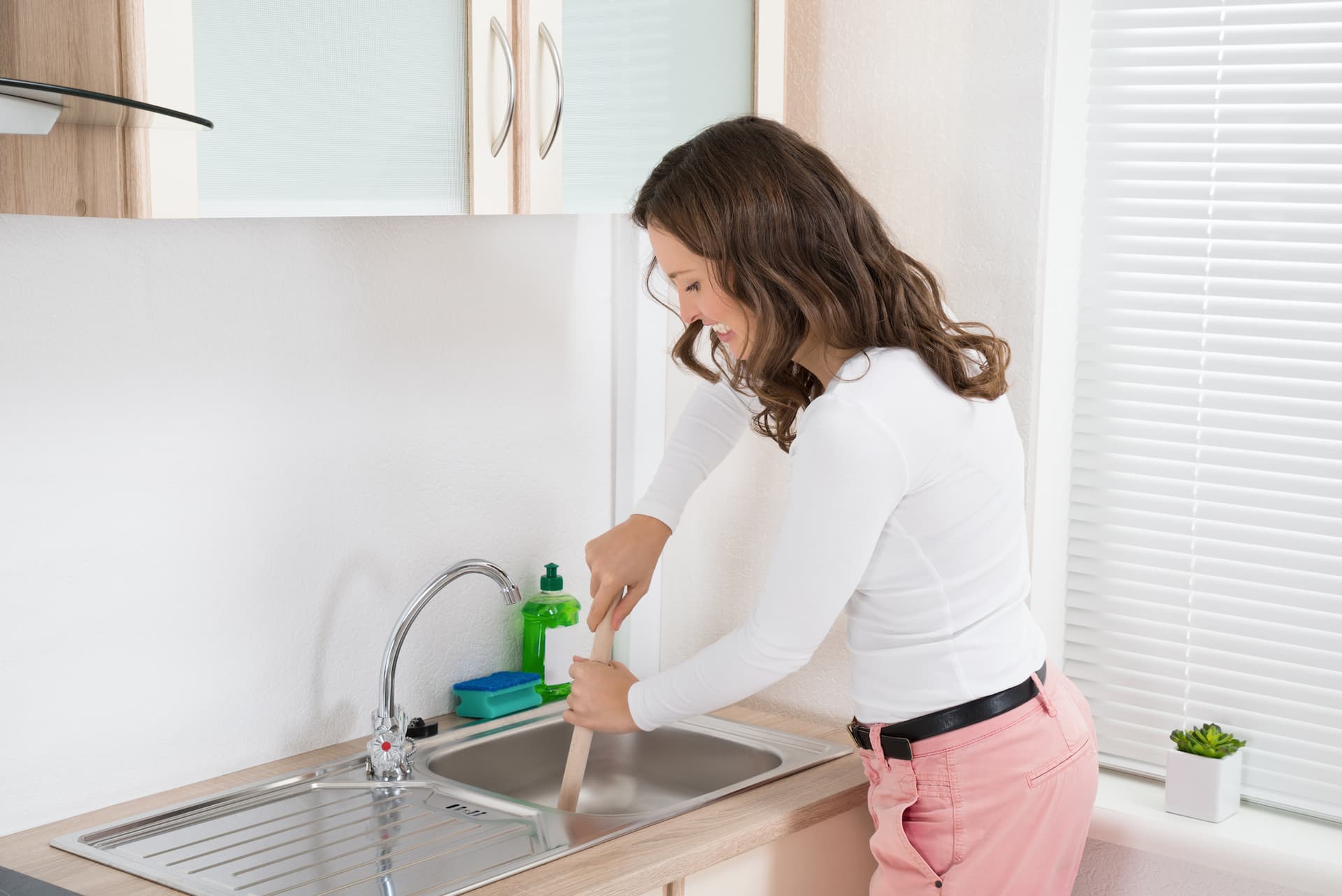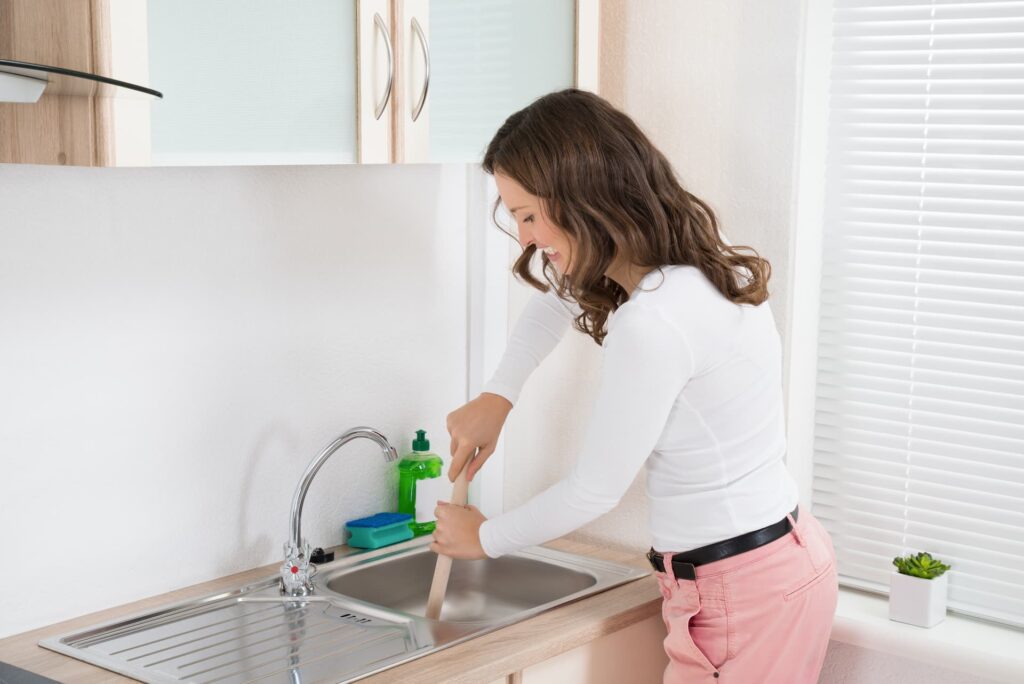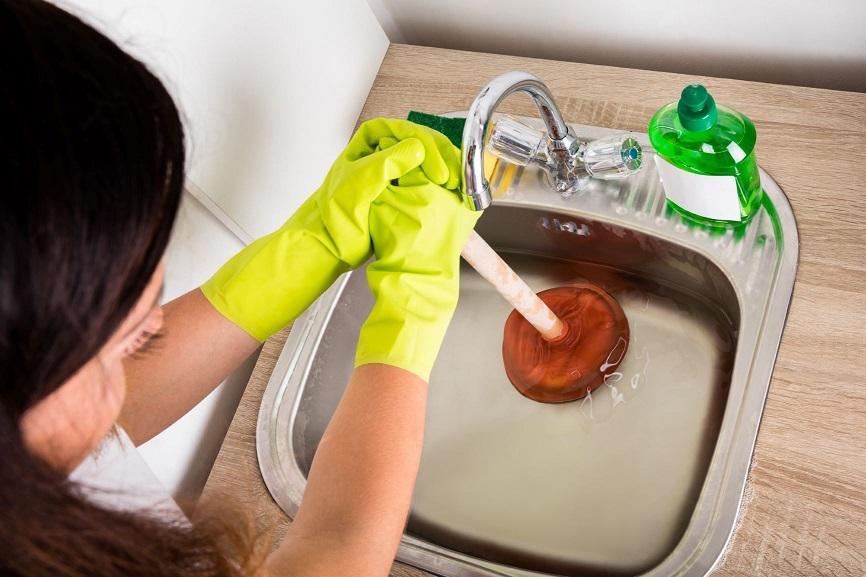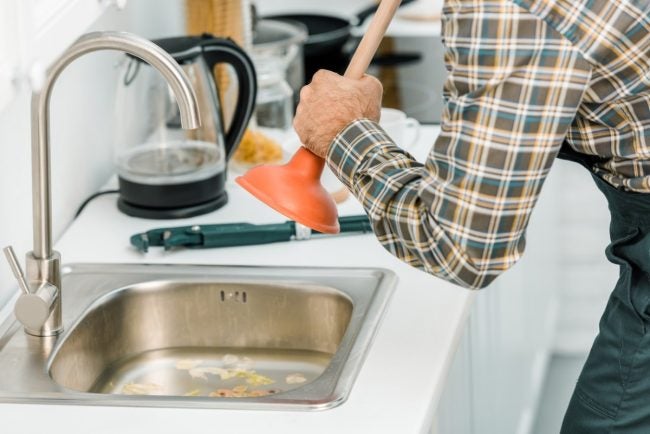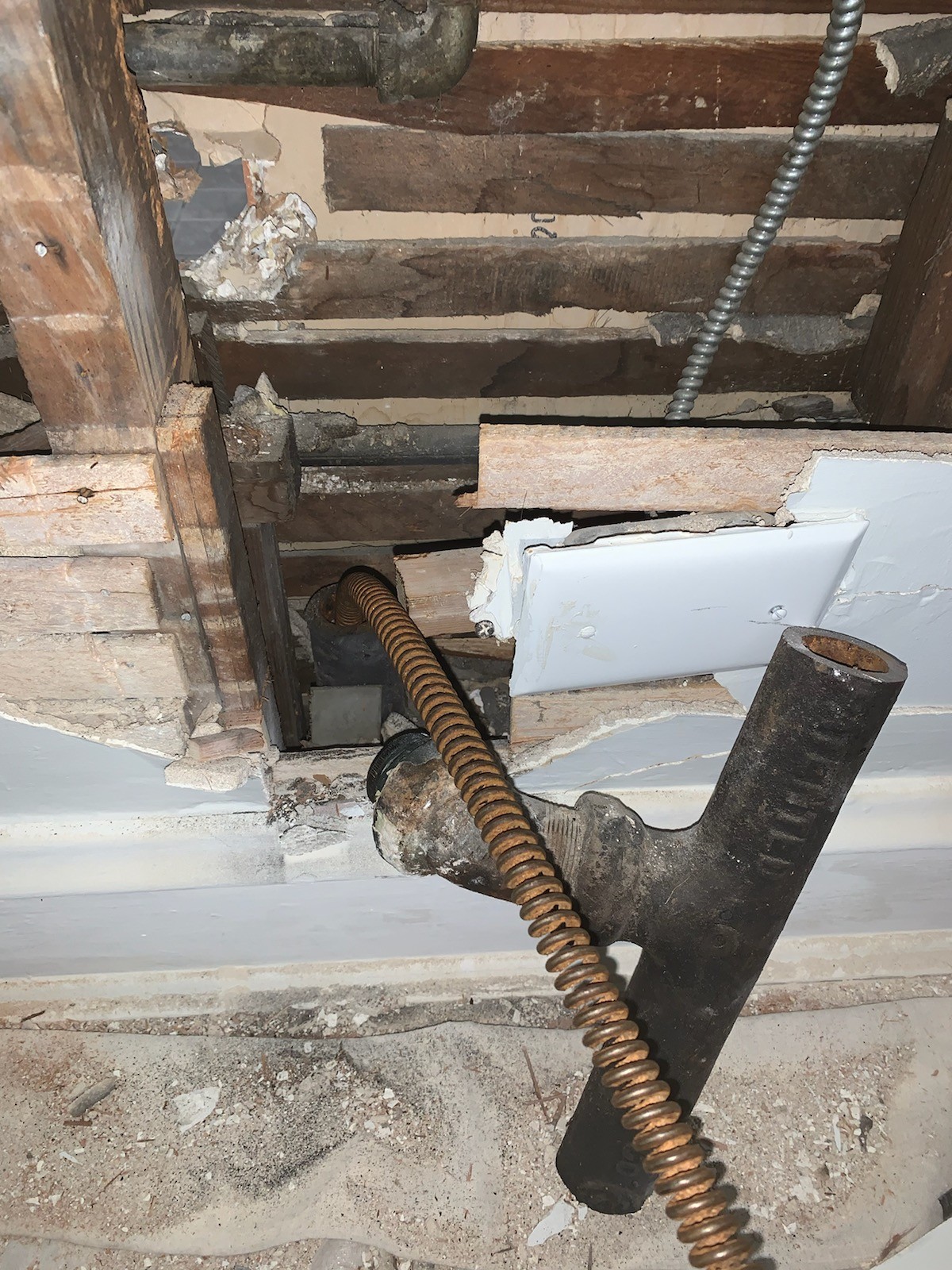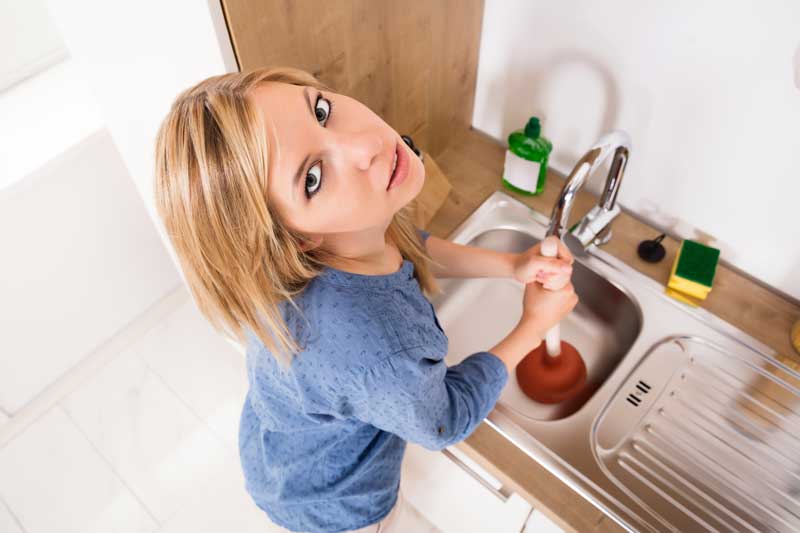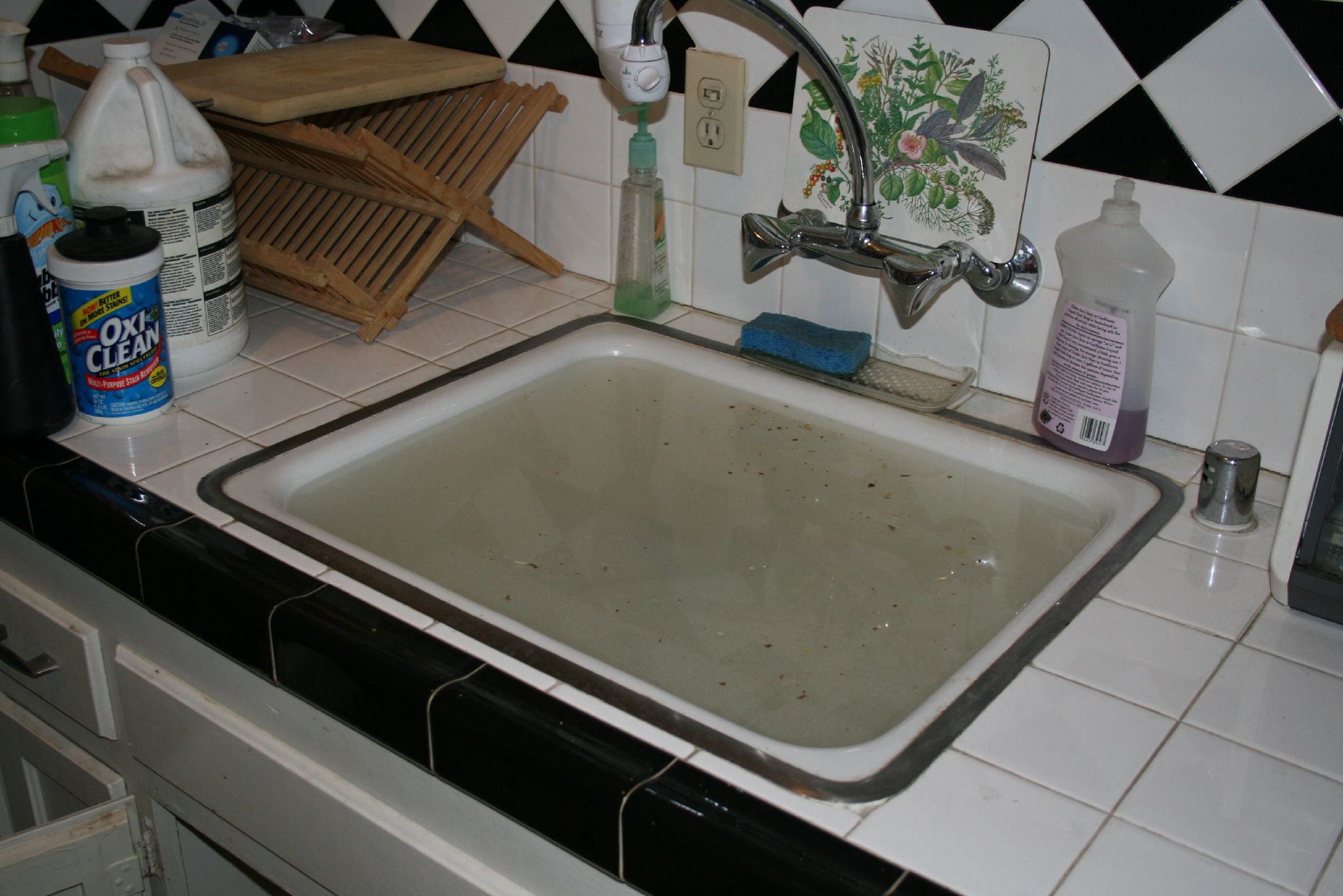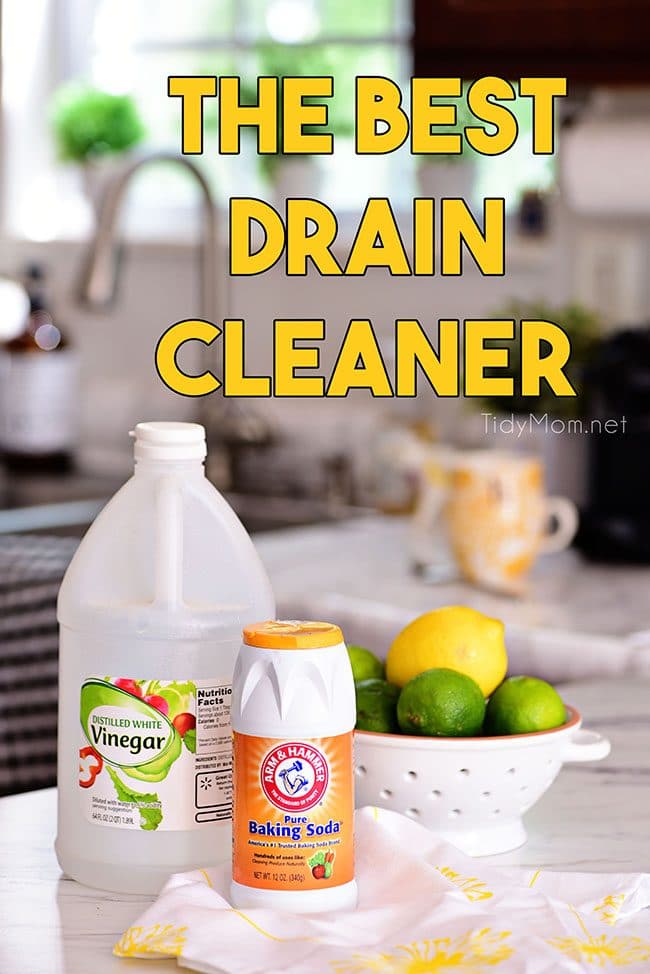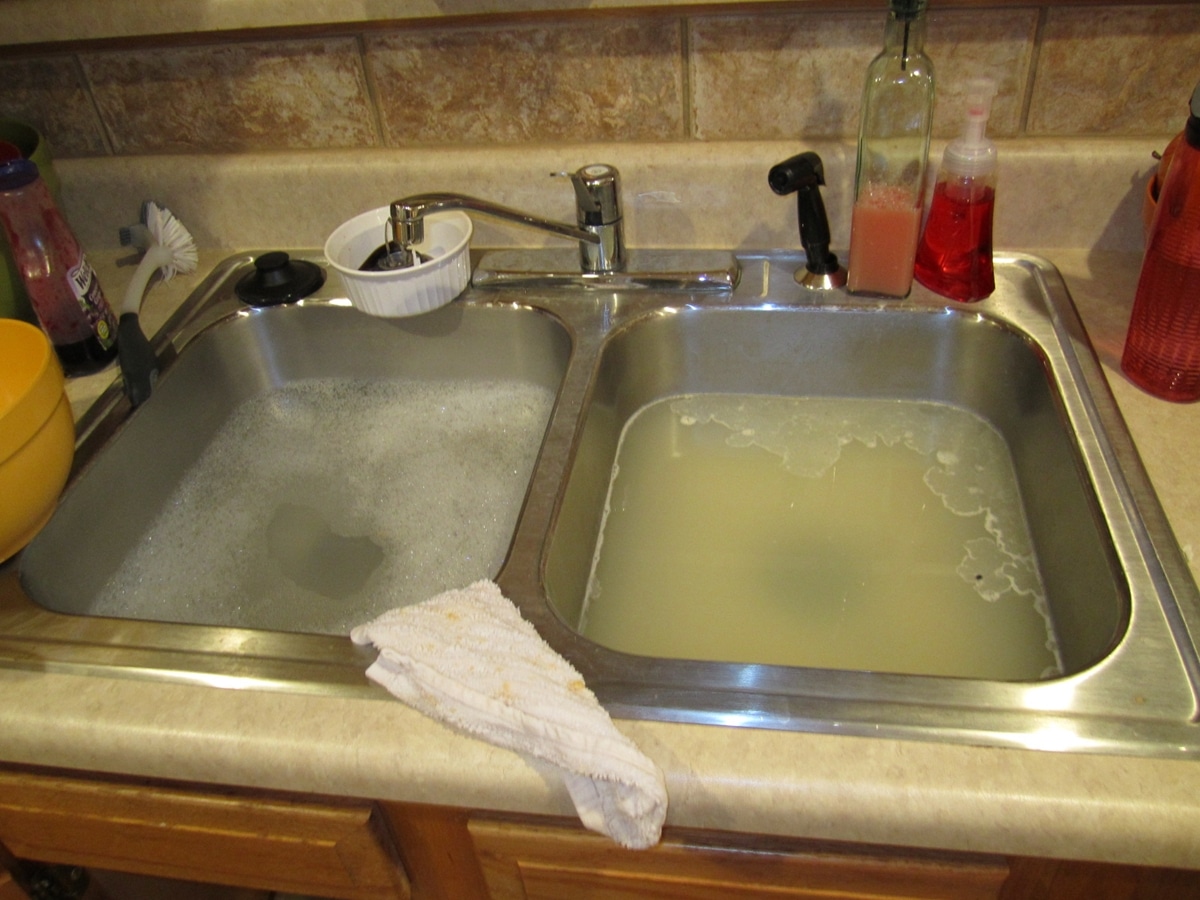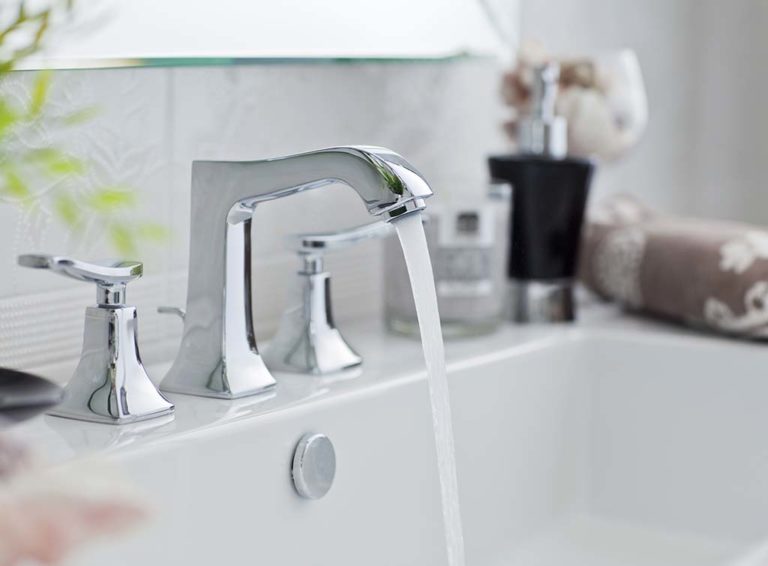Dealing with a clogged kitchen sink can be a frustrating and messy experience. It can disrupt your daily routine and make it difficult to use your kitchen. While a partially clogged sink can still be manageable, a totally clogged kitchen sink is a whole other story. The water won't drain, and you're left with standing water and a sink that's unusable. But don't worry, with the right tools and techniques, you can unclog your kitchen sink and get it back to working order.Unclogging a Kitchen Sink
Before you start panicking and calling a plumber, there are a few things you can try to unclog your kitchen sink on your own. The first step is to assess the situation and determine the cause of the clog. Is it a buildup of food debris, grease, or something else? Once you have an idea of what's causing the clog, you can choose the best method for unclogging your sink.How to Unclog a Kitchen Sink
There are several methods you can use to unclog a kitchen sink. One popular solution is using a plunger. Place the plunger over the drain and push down and pull up several times to create suction. This can help loosen and remove the clog. Another option is using a drain snake or auger. Insert it into the drain and twist it to break up the clog. You can also try a homemade solution of baking soda and vinegar. Pour half a cup of baking soda down the drain, followed by a cup of vinegar. Let it sit for a few minutes before flushing with hot water.Kitchen Sink Clog Solutions
If you prefer a more hands-on approach, you can try removing the clog manually. Start by using a pair of tongs or a pliers to reach into the drain and remove any visible debris. Then, use a wire hanger to fish out any remaining clog. You can also try pouring boiling water down the drain to melt and flush away any grease or buildup. Be careful when using this method and make sure to wear protective gloves.DIY Kitchen Sink Clog Removal
Prevention is always better than a cure, and the same applies to clogged kitchen sinks. To prevent clogs from happening in the first place, make sure to use a sink strainer to catch food debris and hair. Avoid pouring grease, oil, and coffee grounds down the drain as they can solidify and cause clogs. Regularly clean your sink and use a homemade drain cleaner solution to keep your pipes clear.Kitchen Sink Clog Prevention
If your kitchen sink is completely clogged and none of the DIY methods are working, it's time to call in the professionals. A plumber will have the necessary tools and expertise to unclog your sink and get it back to working order. They can also inspect your pipes for any potential issues and provide you with tips on how to prevent future clogs.Clearing a Totally Clogged Kitchen Sink
In some cases, a clogged kitchen sink can be a symptom of a larger plumbing issue. If your sink keeps getting clogged despite your efforts to prevent it, it may be time to call a plumber for a plumbing inspection. They can identify any underlying issues and provide you with a proper repair plan to address the problem.Kitchen Sink Clog Repair
When dealing with a clogged kitchen sink, it's essential to be cautious and take the necessary safety precautions. Always wear protective gloves and eyewear when using chemicals or handling debris. Avoid using harsh chemicals as they can damage your pipes and harm the environment. And remember to always read and follow the instructions on any products you use.Kitchen Sink Clog Removal Tips
Understanding the common causes of kitchen sink clogs can help you prevent them from happening in the future. Some of the most common causes include food debris, grease buildup, and foreign objects like utensils and toys. Knowing what's causing the clog can help you choose the best method for removing it and prevent it from happening again.Kitchen Sink Clog Causes
If you prefer to use natural and chemical-free solutions, there are several home remedies you can try to unclog your kitchen sink. As mentioned earlier, a mixture of baking soda and vinegar can be an effective solution. You can also try using a combination of salt, baking soda, and hot water to break down and flush away the clog. Additionally, pouring boiling water down the drain regularly can help prevent clogs from occurring. In conclusion, a totally clogged kitchen sink can be a major inconvenience, but with the right tools and techniques, you can unclog it and get back to using your kitchen. Remember to always take safety precautions and try to prevent clogs from happening in the future. And if all else fails, don't hesitate to call a professional plumber for assistance.Kitchen Sink Clog Home Remedies
The Importance of Proper Kitchen Sink Maintenance

Don't Let a Clogged Sink Ruin Your Kitchen Design
 When it comes to designing a house, the kitchen is often considered the heart of the home. It is a space where meals are prepared, memories are made, and families gather. However, a clogged kitchen sink can quickly put a damper on all of those things. Not only is it inconvenient for daily tasks, but it can also affect the overall aesthetic of your kitchen. That's why proper kitchen sink maintenance is crucial for maintaining both functionality and design.
Kitchen sinks
are an essential part of any kitchen, and they see a lot of use on a daily basis. From washing dishes to food prep, it's no surprise that they can easily become clogged. Some common causes of a clogged sink include food scraps, grease buildup, and foreign objects getting stuck in the drain. If left unchecked, a clogged kitchen sink can lead to unpleasant odors, slow draining, and even water damage.
Proper maintenance
of your kitchen sink can help prevent clogs from happening in the first place. One simple way to do this is by using a drain strainer to catch food scraps and other debris before they can make their way down the drain. Regularly cleaning your sink with a mixture of hot water and vinegar can also help break down any buildup and keep your drain running smoothly.
In addition to preventative measures, it's important to
address a clogged sink
as soon as it happens. Using a plunger or a drain snake can often do the trick, but for more stubborn clogs, it may be necessary to call a professional plumber. Ignoring a clogged sink can not only lead to further damage, but it can also detract from the overall design of your kitchen.
Properly maintaining your kitchen sink
not only ensures its functionality but also contributes to the overall design of your kitchen. A clogged sink can be an eyesore and take away from the beauty of your space. By taking the time to care for your sink, you can keep it looking and functioning at its best.
In conclusion, a clogged kitchen sink can cause headaches and disrupt the overall design of your kitchen. By implementing proper maintenance techniques and addressing clogs promptly, you can ensure your sink stays in top shape. Don't let a clogged sink ruin your kitchen design, take the necessary steps to keep it running smoothly and looking beautiful.
When it comes to designing a house, the kitchen is often considered the heart of the home. It is a space where meals are prepared, memories are made, and families gather. However, a clogged kitchen sink can quickly put a damper on all of those things. Not only is it inconvenient for daily tasks, but it can also affect the overall aesthetic of your kitchen. That's why proper kitchen sink maintenance is crucial for maintaining both functionality and design.
Kitchen sinks
are an essential part of any kitchen, and they see a lot of use on a daily basis. From washing dishes to food prep, it's no surprise that they can easily become clogged. Some common causes of a clogged sink include food scraps, grease buildup, and foreign objects getting stuck in the drain. If left unchecked, a clogged kitchen sink can lead to unpleasant odors, slow draining, and even water damage.
Proper maintenance
of your kitchen sink can help prevent clogs from happening in the first place. One simple way to do this is by using a drain strainer to catch food scraps and other debris before they can make their way down the drain. Regularly cleaning your sink with a mixture of hot water and vinegar can also help break down any buildup and keep your drain running smoothly.
In addition to preventative measures, it's important to
address a clogged sink
as soon as it happens. Using a plunger or a drain snake can often do the trick, but for more stubborn clogs, it may be necessary to call a professional plumber. Ignoring a clogged sink can not only lead to further damage, but it can also detract from the overall design of your kitchen.
Properly maintaining your kitchen sink
not only ensures its functionality but also contributes to the overall design of your kitchen. A clogged sink can be an eyesore and take away from the beauty of your space. By taking the time to care for your sink, you can keep it looking and functioning at its best.
In conclusion, a clogged kitchen sink can cause headaches and disrupt the overall design of your kitchen. By implementing proper maintenance techniques and addressing clogs promptly, you can ensure your sink stays in top shape. Don't let a clogged sink ruin your kitchen design, take the necessary steps to keep it running smoothly and looking beautiful.
/plumber-unclogging-kitchen-sink-169270382-5797a9355f9b58461f27f024.jpg)




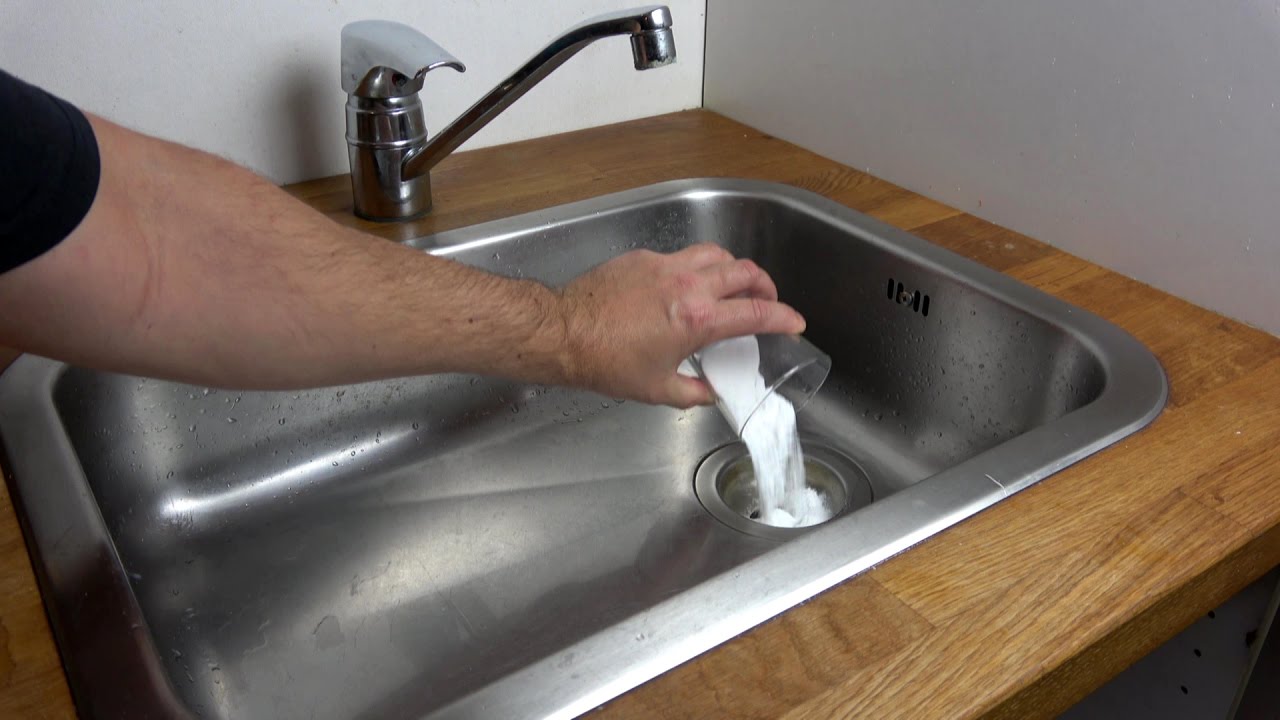

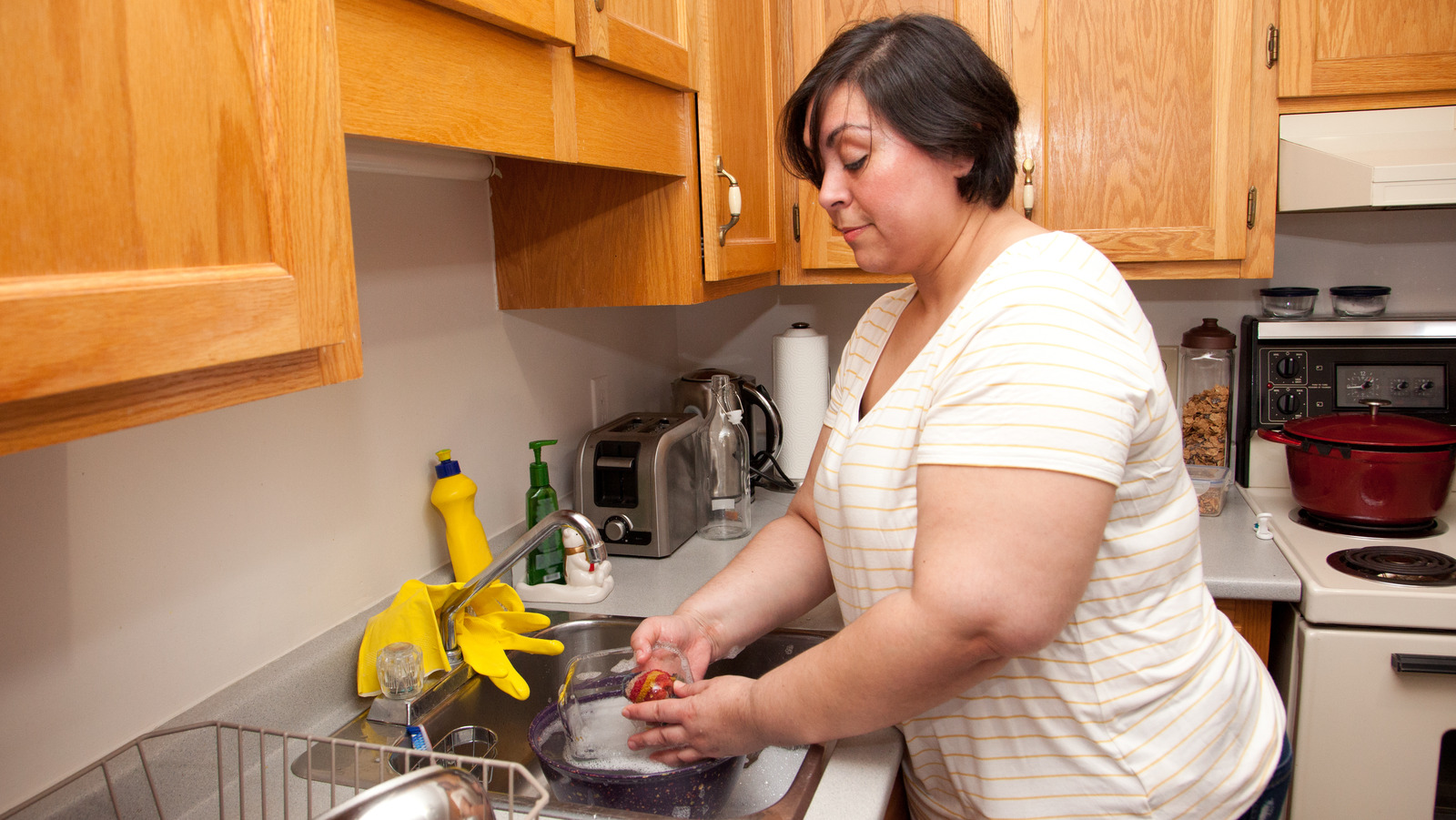

:max_bytes(150000):strip_icc()/how-to-unclog-a-kitchen-sink-2718799_sketch_FINAL-8c5caa805a69493ab22dfb537c72a1b7.png)

/how-to-unclog-a-kitchen-sink-2718799_sketch_FINAL-8c5caa805a69493ab22dfb537c72a1b7.png)






